Privacy and data protection
Privacy and data protection are essential for us to live, connect, work, create, organise and more. Governments and companies have long used mass surveillance for control trying to legitimise snooping for health, security or other reasons. The near-total digitisation of our lives has made it easier to control, profile and profit from our attention, data, bodies and behaviours in ways that are very difficult for us to understand and challenge. European data protection standards such as the GDPR are a good step forward but we need more to effectively ensure enforcement and protection against unlawful surveillance practices.
Filter resources
-
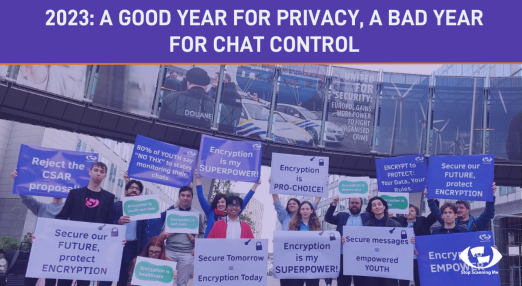
2023: A good year for privacy, a bad year for chat control
With 2023 coming to a close, where does that leave the draft EU Child Sexual Abuse (CSA) Regulation?
Read more
-

EDRi-gram, 6 December 2023
In this edition, we reflect on how our movement of human rights organisations and supporters influenced the European Parliament to reject the mass scanning of private messages in the CSA Regulation. And as we approach the final negotiations on the Artificial Intelligence (AI) Act, we are raising the voices of 16 organisations, calling on the Council to effectively regulate the use of AI systems by law enforcement, migration control, and national security authorities in the law. Read on to learn more about digital exclusion in Europe, the expansion of the EURODAC database, and the EU's plans for facial recognition.
Read more
-
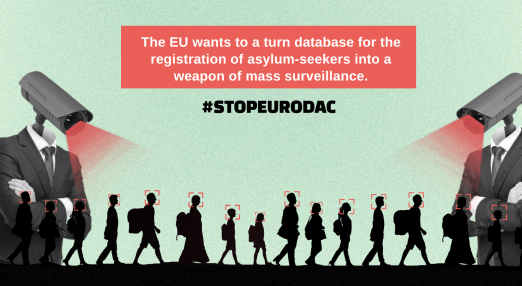
Civil society calls for an end to the expansion of EU’s EURODAC database
Civil society is calling for an end to the expansion of EURODAC, the EU database for the registration of asylum-seekers. EURODAC is being transformed into an expansive, violent surveillance tool that will treat people seeking protection as crime suspects.
Read more
-
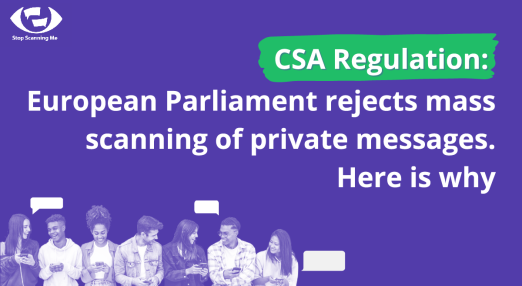
CSAR: European Parliament rejects mass scanning of private messages. Here is why
On 22 November, the European Parliament officially adopted its position on the draft ‘Regulation laying down rules to prevent and combat child sexual abuse’ (CSAR). With strong support for this position from all seven European political groups, this marks a positive development for human rights in one of the most controversial draft European Union (EU) laws in recent memory.
Read more
-

Civil society statement: Council risks failing human rights in the AI Act
In the run up to EU AI Act trilogue negotiation, 16 civil society organisations are urging representatives of the Council of the European Union to effectively regulate the use of AI systems by law enforcement, migration control and national security authorities in the legislation.
Read more
-
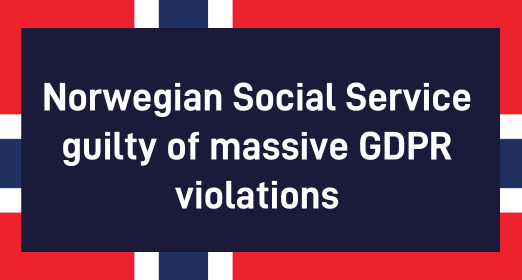
Norwegian Social Service guilty of massive GDPR violations
Janne Cecilie Thorenfeldt, living in Norway, discovered that her employer which is also the Norwegian Social Service violated her data protection rights. So she took them to court. Read on to learn what happened.
Read more
-

“8 December” case: why is encryption on trial?
On 3 October, the trial of the so-called “8 December” case began. Seven people are prosecuted for being a “terrorist group”.
Read more
-

AI Act: What happens when lawmakers’ faces get scanned with face recognition algorithms?
EDRi member in Italy Hermes Center simulates face recognition on lawmakers to pressure them for a total ban of remote biometric identification (RBI) in the Artificial Intelligence (AI) Act.
Read more
-

EDRi-gram, 23 November 2023
In this edition, we are looking at the thunderous news of six civil society organisations, including EDRi, taking the European Union’s dangerous content regulation to court. The regulation proposes a dodgy tech solution that empowers the police to censor what you post online. We can stop that. We are also excited to share a new campaign called “Don’t Spy EU” which allows you to scan the faces of European lawmakers with a face recognition algorithm. Lawmakers are the ones in charge of finalising the Artificial Intelligence Act, so let’s make sure they fully understand the risks of biometric surveillance.
Read more
-
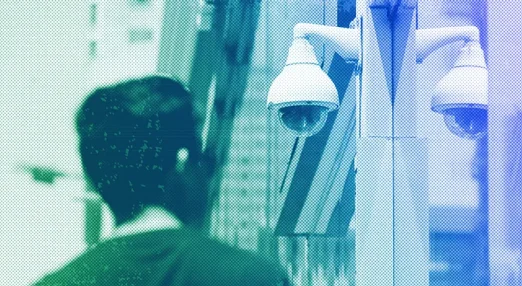
The EU wants to make facial recognition history — but it must be done for the right reasons
Whilst civil rights activists have long called for an outright ban, certain EU lawmakers may see the AI Act as an opportunity to claim that they are doing the (human) right(s) thing — and actually doing the opposite.
Read more
-

EU AI Act Trilogues: Status of Fundamental Rights Recommendations
As the EU AI Act negotiations continue, a number of controversial issues remain open. At stake are vital issues including the extent to which general purpose/foundation models are regulated, but also crucially, how far does the AI Act effectively prevent harm from the use of AI for law enforcement, migration, and national security purposes.
Read more
-
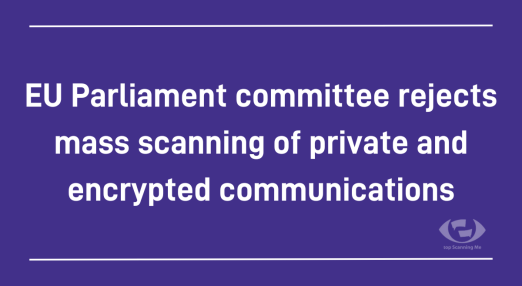
EU Parliament committee rejects mass scanning of private and encrypted communications
On 14th November, Members of the European Parliament’s ‘Civil Liberties’ committee voted against attempts from EU Home Affairs officials to roll out mass scanning of private and encrypted messages across Europe. It was a clear-cut vote, with a significant majority of MEPs supporting the proposed position.
Read more
